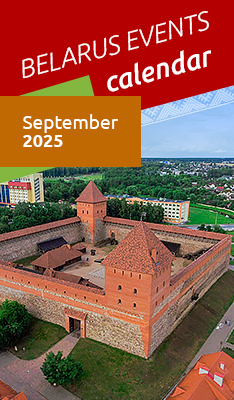Press releases
Artificial waterway to connect Baltic Sea, Black Sea possible
BREST, 24 June (BelTA) – It is possible to restore navigation between the Baltic Sea and the Black Sea by building an artificial waterway between the Vistula River and the Dnieper-Bug Canal. Experts of Belarus, Poland, and Ukraine discussed the idea during a meeting in Lutsk, Ukraine, BelTA learned from Marina Borisova, manager for communications and visual representation of the European Union’s project for restoring the E40 waterway in the Dnieper-Vistula section.
A transboundary commission that involves representatives of regional government agencies, ministries, research institutes, transport, logistics, and nature management organizations of Belarus, Ukraine, and Poland has heard out the first report by members of the international consortium. The body was established under the supervision of the Maritime Institute in Gdansk in early 2015 for the sake of working out the optimal way for restoring the E40 waterway. The choice featured eight schemes initially, including the possibility of straightening out the rather windy and unnavigable parts of the Zapadny Bug River. However, the Polish Nature Ministry and ecological organizations spoke against the idea.
According to Nikolai Kotetsky, supervisor of the E40 waterway restoration project, director of the Belarusian enterprise Dnieper-Bug Waterway, in Poland the Zapadny Bug River crosses the protected natural zone Natura 2000. Large-scale operations on the river can damage the existing ecological system. This is why specialists believe it would be more advisable to build a bypass waterway between the Vistula River in Poland and the Mukhovets River in Belarus. “It is also necessary to take care of a few matters of great importance for Belarus and Poland like the water supply of the future canal. An agreement has been reached that the experts will present their conclusions in November 2015,” said Nikolai Kotetsky.
The E40 waterway connects the ports of Gdansk and Kharkov via the Vistula River, Zapadny Bug River, the Pripyat River, and the Dnieper River. Once the waterway is operational, it will allow the neighboring countries to trade in 4 million tonnes of merchandise every year. Domestic water transport requires the least amount of energy and is most environmentally friendly in comparison with transportation by road or rail. Apart from that, the waterway’s restoration will encourage the development of new enterprises and the creation of jobs, the development of transboundary water tourism in the bordering areas.
Plans have been made to arrange a meeting involving representatives of the nature ministries and the ministries responsible for transport and infrastructure of Belarus, Ukraine, and Poland in Warsaw in July for the sake of popularizing the idea of restoring the E40 waterway in Poland where most of the operations to build the new canal will take place. A forum for representatives of ecological public and state-run organizations will take place there in autumn as well as a conference under the aegis of five voivodeships of Poland, which are located along the waterway. Representatives of regional and central government agencies of Poland, Belarus, and Ukraine, businessmen from all over Europe, in particular, transportation companies, are invited to take part in the events.







 print version
print version make home page
make home page add to bookmarks
add to bookmarks

